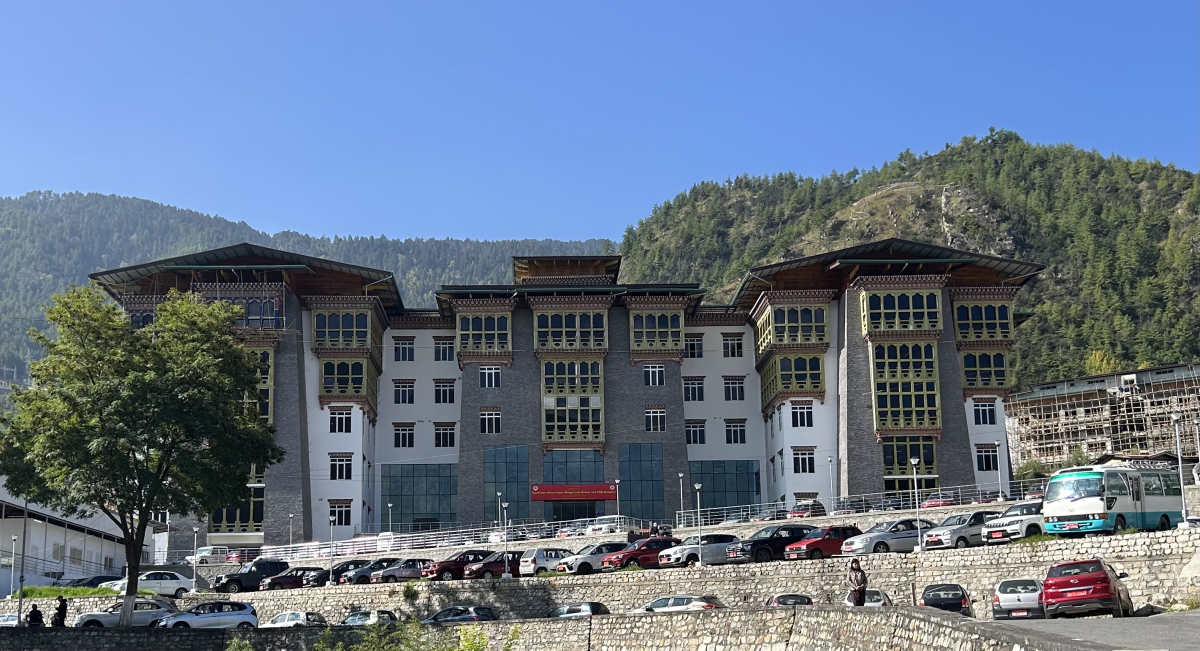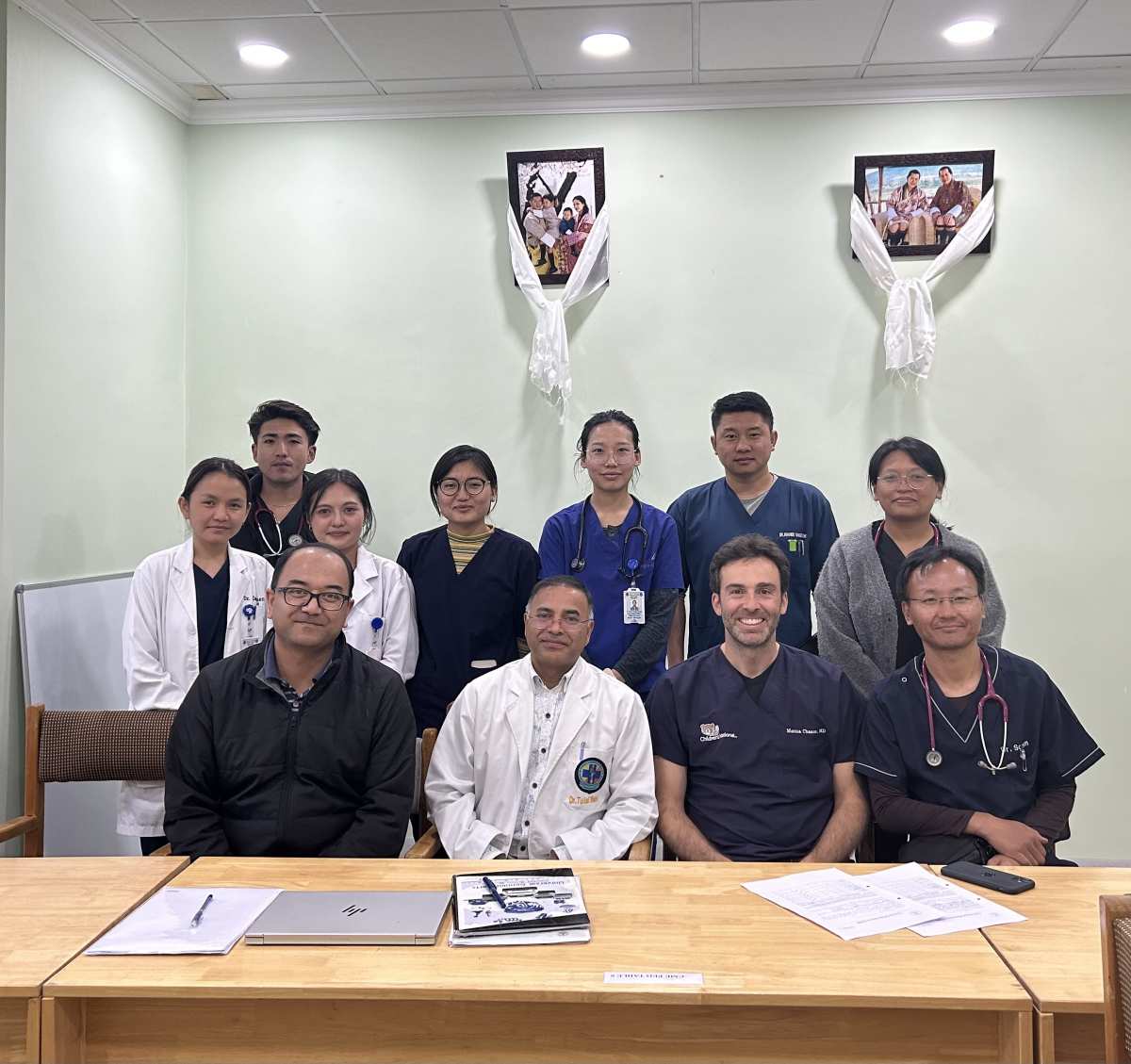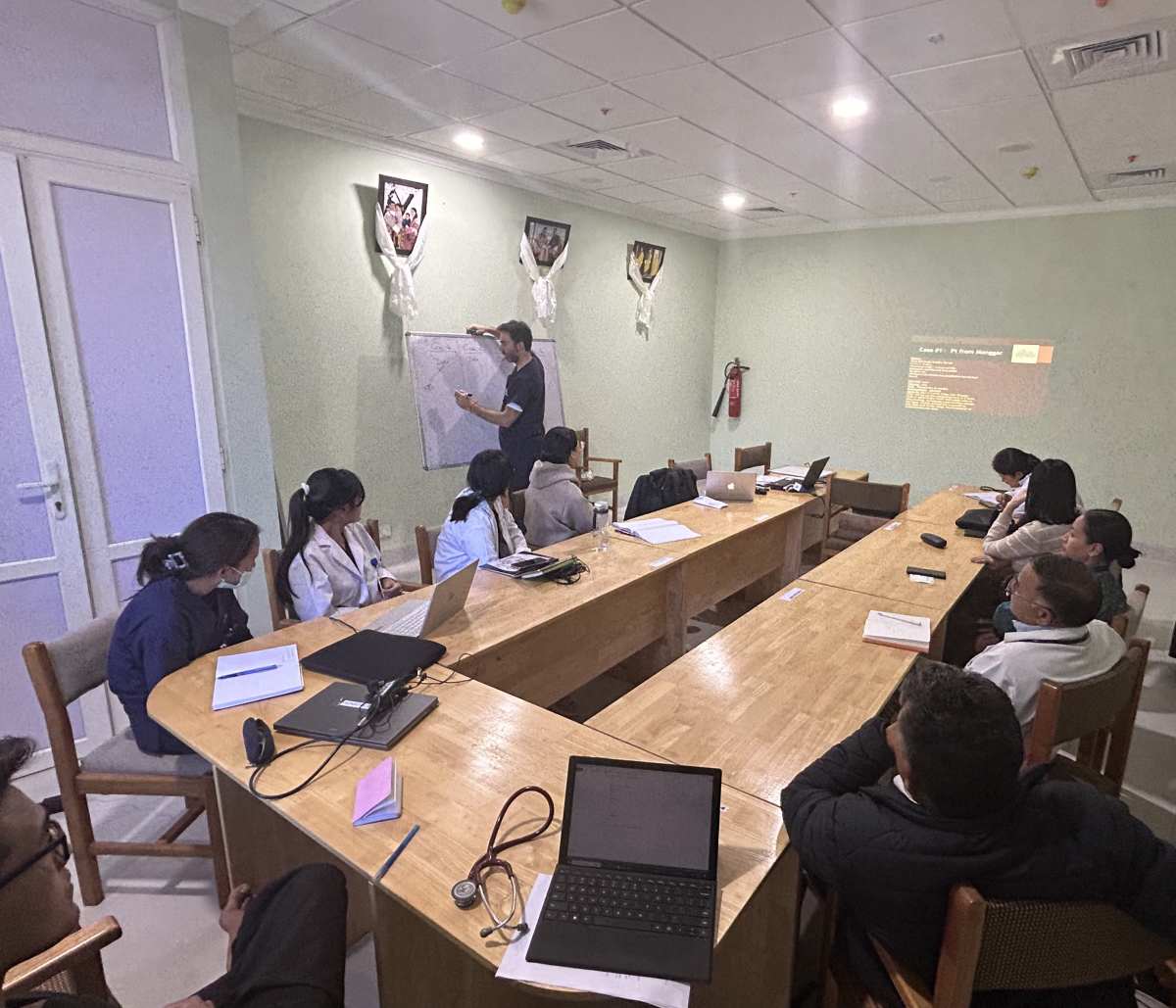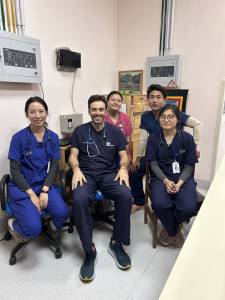Provide training to pediatric residents and nurses at Jigme Dorji Wangchuk Hospital (a 350 bed National Referral Hospital) in topics related to child health. My responsibilities will be to:
1. Lead journal clubs and discussion
2. Provide case presentations and discussion
3. Provide bedside clinical teaching and demonstration
4. Provide seminars, workshops and conferences on specific topics of interest as
outlined by department leadership
5. Participate in grand rounds
6. Participate in weekly faculty lectures
The way I plan to make a difference is to:
1) be a helping hand in a country where there is a significant shortage of pediatricians
2) teach evidenced based medicine to the local medical students/residents
3) enhance medical students/residents critical thinking skills by teaching them the correct approach to numerous types of problems that one would encounter in a pediatric hospital
Local Bhutanese medical staff and pediatric patients.
The reason I chose Bhutan is because of the unique features of the country and its people. It is considered one of the most remote and isolated countries in the world and yet they are consistently recognized as having the happiest people in the world. They have a longstanding monarchy and their king is very well liked. People in Bhutan live by the principles of Buddhism and have great respect for nature and animals. It is a very peaceful country that unfortunately suffered greatly from the COVID-19 pandemic and is just now starting to recover.
At this time, my expertise lies in pediatric inpatient medicine, pediatric tropical infectious diseases, and breastfeeding medicine with a strong passion for medical education. The expected impact I will have while training pediatricians at the JDWNR will hopefully be to instill in them more evidence-based practices. Furthermore, I hope to inspire them to always want to learn more, to become teachers themselves and to embrace medical experiences abroad that would enrich their knowledge.
Working at the Jigme Dorji Wangchuck National Referral (JDWNR) Hospital in Thimphu will hopefully be another stepping-stone for my future career in global health. I have always been very curious to witness how pediatric medicine is practiced in various parts of the world because of my passion for pediatrics and my multicultural upbringing. With each and every volunteer experience, I have gained a better understanding of what it means to work in resource limited settings and with people who might not speak your language. I have thrived in those environments and gained awareness of the importance of cultural competency.










1) Patients - Given the lack of subspecialty pediatricians within the country (aside from 1 intensivist, 1 neonatologist, 1 nephrologist and 1 surgeon), all “consultants” (the equivalent of attendings in the US) were occasionally faced with making difficult decisions for which they may have not received enough training. To mitigate that lack of subspecialty expertise, I tried acting as a liaison between the local hospital and my home institution (Children’s National Medical Center) to obtain expert advice on several complex cases seen throughout the five weeks (refractory seizures, cardiac failure). Their contribution was much appreciated by local staff and patients greatly benefited from that expertise.
2) Interns and residents - One aspect I tried to encourage young learners was to be organized and concise and to make the diagnosis and treatment plan clear to the listener. To facilitate that, I always carried a note book and/or a small white board on the ward and proactively drew diagrams, wrote questions or summary representation statements to engage learners. This was very well received and residents looked forward to my teaching sessions
3) "Consultants" - I connected a local senior pediatric consultant interested in creating a national breastfeeding curriculum with worldwide leaders in the field. I connected a local senior pediatric consultant interested in tropical medicine with a Clinical Tropical Medicine Diploma course director.